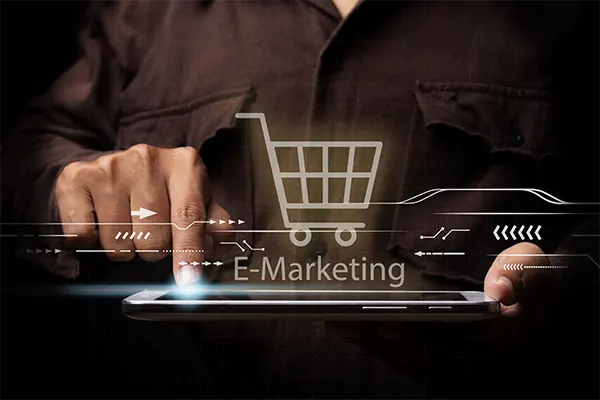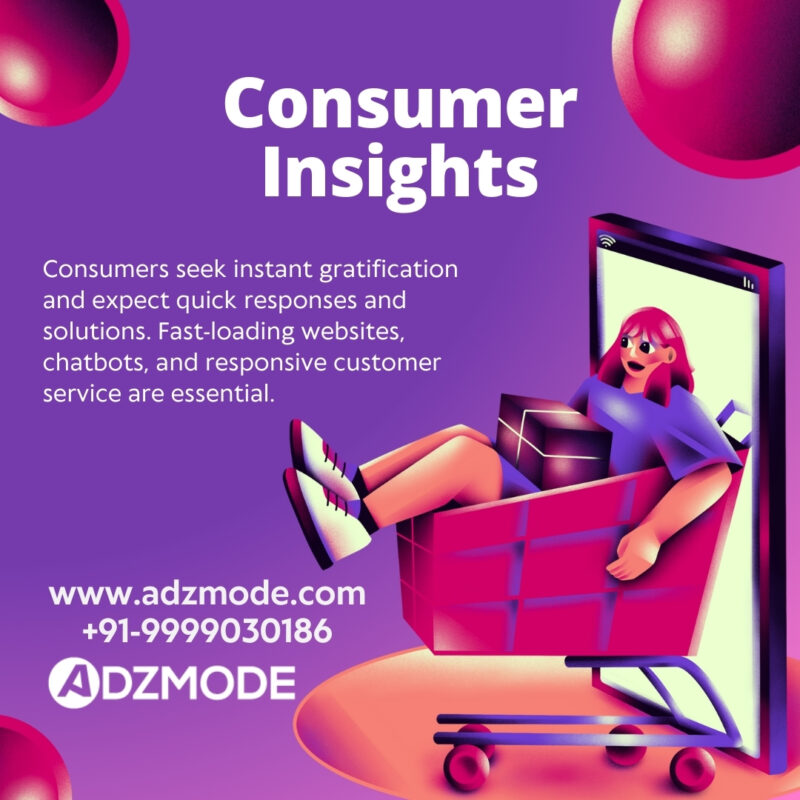
In the modern retail landscape, the traditional ways of doing business are no longer sufficient to stay competitive and relevant. The advent of digital technologies has revolutionized the retail industry, necessitating a shift from conventional marketing tactics to digital marketing strategies. The importance of “digital marketing for Retail Business Marketing” cannot be overstated as it provides a plethora of opportunities for growth, customer engagement, and sales enhancement. As consumers increasingly turn to online platforms for their shopping needs, retail businesses must adapt and embrace digital marketing to thrive in this dynamic environment. This article explores the multifaceted reasons why digital marketing for retail business marketing is essential, highlighting its benefits, strategies, and real-world applications.
The Evolution of Retail Business Marketing

From Brick-and-Mortar to Digital Platforms
The retail sector has witnessed a dramatic transformation over the past few decades. Traditional brick-and-mortar stores were once the cornerstone of retail, relying heavily on physical foot traffic, print advertisements, and word-of-mouth marketing. However, the rise of the internet and digital technologies has shifted consumer behavior, making online shopping a dominant force in the retail industry.
The Role of Digital Marketing
Digital marketing encompasses all marketing efforts that use an electronic device or the internet. Businesses leverage digital channels such as search engines, social media, email, and websites to connect with current and prospective customers. For retail businesses, digital marketing offers a powerful way to reach a broader audience, engage with customers in real-time, and measure the effectiveness of marketing campaigns with unprecedented accuracy.
Key Benefits of Digital Marketing for Retail Business Marketing

1. Wider Reach and Accessibility
Digital marketing breaks down geographical barriers, allowing retail businesses to reach a global audience. Unlike traditional marketing methods, which are often limited by location, digital marketing enables retailers to connect with potential customers anywhere in the world. This expanded reach is particularly beneficial for small and medium-sized enterprises (SMEs) that may not have the resources to establish a physical presence in multiple locations.
2. Cost-Effectiveness
One of the most compelling advantages of digital marketing is its cost-effectiveness. Traditional marketing methods such as television commercials, print ads, and billboards can be prohibitively expensive, especially for smaller businesses. Digital marketing, on the other hand, offers various cost-effective channels like social media, email marketing, and content marketing, which provide significant returns on investment (ROI). Retailers can allocate their marketing budgets more efficiently and achieve better results with less expenditure.
3. Enhanced Customer Engagement
Digital marketing facilitates direct and continuous interaction with customers. Social media platforms, in particular, provide a space for retailers to engage with their audience through posts, comments, and direct messages. This two-way communication fosters stronger relationships, builds trust, and enhances customer loyalty. Additionally, digital marketing allows retailers to gather valuable feedback and insights from customers, enabling them to improve their products and services. Elevate your brand above the competition: innovative digital marketing that captures and converts by a top digital marketing agency in India!
4. Data-Driven Decision Making
One of the most transformative aspects of digital marketing is the ability to collect and analyze data. Retailers can track customer behavior, preferences, and purchasing patterns with tools like Google Analytics, social media insights, and email marketing software. This data-driven approach allows for more informed decision-making, helping retailers to tailor their marketing strategies to meet the specific needs of their target audience. By leveraging data, retail businesses can optimize their campaigns for better performance and higher conversion rates.

5. Personalization and Targeting
Digital marketing enables retailers to deliver personalized experiences to their customers. With tools like email marketing and customer relationship management (CRM) software, businesses can segment their audience and send tailored messages based on customer behavior and preferences. Personalized marketing not only improves customer satisfaction but also drives higher engagement and sales. Additionally, digital marketing platforms offer sophisticated targeting options, allowing retailers to reach specific demographics, interests, and behaviors with precision.
6. Increased Visibility and Brand Awareness
A strong online presence is crucial for increasing brand visibility and awareness. Digital marketing strategies such as search engine optimization (SEO), content marketing, and social media marketing help retailers rank higher in search engine results, attract more website visitors, and build a recognizable brand identity. Consistent and strategic online marketing efforts ensure that a retail brand stays top-of-mind for potential customers, driving more traffic and conversions.

7. Flexibility and Scalability
Digital marketing offers unparalleled flexibility and scalability for retail businesses. Marketing campaigns can be quickly adjusted and scaled up or down based on performance and changing business needs. Whether launching a new product, running a seasonal promotion, or expanding into new markets, digital marketing provides the agility to respond rapidly and effectively. This flexibility ensures that retail businesses can adapt to market trends and consumer demands in real-time.
Effective Digital Marketing Strategies for Retail Businesses

1. Search Engine Optimization (SEO)
SEO is the process of optimizing a website to rank higher in search engine results pages (SERPs). Higher rankings lead to increased visibility, website traffic, and ultimately, sales. Key SEO strategies for retail businesses include keyword research, on-page optimization, link building, and creating high-quality content that addresses the needs and queries of potential customers.
2. Social Media Marketing
Social media platforms like Facebook, Instagram, Twitter, and Pinterest are invaluable tools for retail marketing. Retailers can use these platforms to share engaging content, showcase products, run targeted ads, and interact with customers. Social media marketing helps build brand awareness, drive website traffic, and boost sales through social commerce features like shoppable posts and stories. Maximize your online impact: join forces with the premier digital marketing company in India for unbeatable ROI!
3. Email Marketing
Email marketing remains one of the most effective digital marketing strategies for retail businesses. By building an email list, retailers can send targeted campaigns to their subscribers, promoting new products, sales, and exclusive offers. Personalized email content and automated email sequences can nurture leads and convert them into loyal customers.
4. Content Marketing
Content marketing involves creating and distributing valuable, relevant content to attract and engage a target audience. For retail businesses, content marketing can take the form of blog posts, videos, infographics, and social media updates. High-quality content helps establish the brand as an authority in its industry, drives organic traffic, and supports other digital marketing efforts like SEO and social media marketing.
Visit: b2b digital marketing strategies
5. Pay-Per-Click (PPC) Advertising
PPC advertising, such as Google Ads and social media ads, allows retailers to reach their target audience quickly and effectively. Retailers can bid on keywords and display ads to users who are actively searching for related products. PPC campaigns can be highly targeted and provide immediate results, making them an excellent tool for driving traffic and sales.
6. Influencer Marketing
Influencer marketing involves partnering with individuals who have a large and engaged following on social media. Influencers can help promote retail products to their audience, providing authentic endorsements and increasing brand credibility. By collaborating with influencers who align with their brand values, retailers can reach new audiences and drive sales.
7. Affiliate Marketing
Affiliate marketing allows retailers to partner with affiliates who promote their products in exchange for a commission on sales. This performance-based marketing strategy expands the retailer’s reach and drives traffic and sales without upfront costs. Affiliates can include bloggers, social media influencers, and other content creators who have a relevant audience.
Real-World Applications and Success Stories
Case Study 1: Nike’s Digital Marketing Prowess
Nike is a prime example of a retail brand that has successfully leveraged digital marketing. Through strategic use of social media, influencer partnerships, and personalized email campaigns, Nike has maintained a strong online presence and engaged with millions of customers worldwide. Their use of innovative technologies like augmented reality (AR) for virtual try-ons and personalized product recommendations has further enhanced their digital marketing efforts.
Case Study 2: Warby Parker’s Direct-to-Consumer Model
Warby Parker, an eyewear retailer, disrupted the traditional retail model by adopting a direct-to-consumer approach powered by digital marketing. Their seamless online shopping experience, virtual try-on tool, and engaging social media content have helped them build a loyal customer base and achieve significant growth. Warby Parker’s success highlights the importance of integrating digital marketing into retail business strategies.
Case Study 3: Glossier’s Community-Driven Marketing
Glossier, a beauty brand, has built its success on community-driven digital marketing. By leveraging user-generated content, influencer collaborations, and a strong social media presence, Glossier has created a highly engaged community of brand advocates. Their approach demonstrates the power of digital marketing in building a loyal customer base and driving sales.
Visit: tips for ecommerce website development
Conclusion
The “benefits of digital marketing for Retail Business Marketing” are manifold and transformative. From increasing brand visibility and customer engagement to driving sales and fostering customer loyalty, digital marketing offers retail businesses the tools and strategies needed to thrive in the digital age. As consumer behavior continues to evolve and the retail landscape becomes more competitive, embracing digital marketing is not just an option but a necessity for retail businesses aiming to achieve sustainable growth and success. By leveraging the power of digital marketing, retail businesses can connect with their audience in meaningful ways, adapt to changing market trends, and ultimately, drive their business forward.
Share Your Project Requirements With Us





